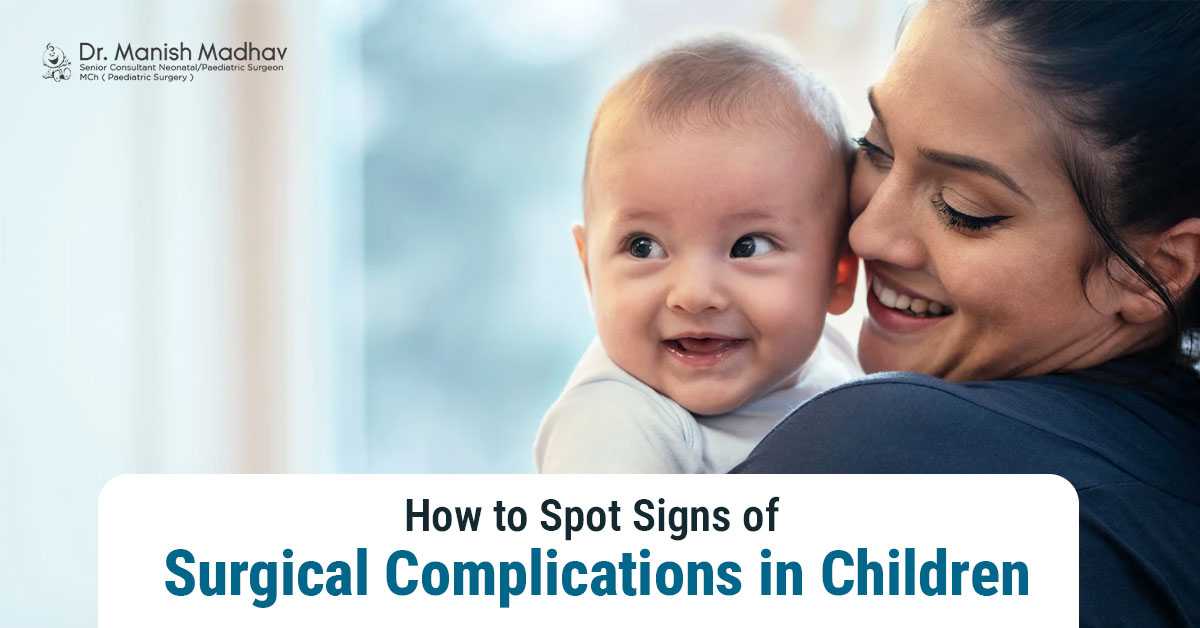It's natural to have anxiety or tension during the healing process after your child has surgery, whether it's a simple procedure like tonsil removal or general surgery. In a few cases, issues might arise. Thus, understanding what is and is not typical following pediatric surgery is helpful for parents and caregivers.
Early diagnosis of signs of surgical complications in children is very important. If identified early, many problems may be resolved easily, but if they are neglected or overlooked, they may worsen. When you know the warning signs to look out for, when to call the doctor, and how to aid your kid at home while they recuperate will be beneficial for your kid’s well-being.
Things you need to know about identifying risks following your child's operation are in this blog, which include:
- The most frequent post-operative problems in children
- Ways to identify early signs
- What is and isn't typical throughout the healing process
- When to call your pediatric surgeon and get emergency care
- Advice on supporting your child's speedy recovery
Common Signs of Surgical Complications in Children
Chronic or Worsening Pain
- Becomes worse and worse.
- Does not react well to medicines given.
- Seems excessive given the procedure.
Excessive Bleeding
- Bleeding that is excessive
- Ongoing
- The surgical site is unusually red
Signs of Infection
- The incision site is enough red
- Unusual discharge or pus that comes with/ without unpleasant smell
- Fever over 101°F for 48 hours
- High sensitivity and warmth surrounding the incision site
Difficulty Breathing or Shortness of Breath
- Breathing too quickly or painfully
- Sounds like wheezing or whistling
- Pale or blue lips
- Unexpected episodes of coughing
Severe Nausea, Vomiting, or Dehydration
- Dry mouth and lips
- Eyes that are sunken
- Decreased urine production (older children urinating less frequently or newborns urinating less frequently)
- Unusual fatigue or agitation
Behavioral and Emotional Changes
- Unusual irritation or fussiness
- Refusal of food or liquids
- Sleeping a lot more than normal
- Absence of enthusiasm for play or things they often find enjoyable
Other signs of surgical complications in children
-
Swelling That Gets Worse
-
Delayed Healing or Wound Opening
Here’s an Overview of Normal Recovery After Surgery
- Some level of mild bruising and edema at the surgery site
- Pain or discomfort that may typically be controlled with prescription drugs
- Decreased levels of activity while the body recovers
- Short-term decrease in appetite
Know About the Specific Signs by Surgery Type
- After a tonsillectomy or adenoidectomy, keep an eye out for any blood in the vomit, frequent swallowing, or throat bleeding.
- After abdominal surgery, watch for signs of bloating, excruciating pain in the abdomen, or difficulty passing stool or gas.
- In orthopaedic surgery, look for signs of edema, numbness, or difficulty moving the affected fingers or toes.
- Look for symptoms in your kid like pus, discharge, or worsening hearing problems after ear surgery.
How Parents Can Help in the Recovery Process
- Carefully follow the doctor's recommendations, including any food restrictions, exercise limits, and medication regimens.
- Maintain the surgery site dry and clean by washing your hands before handling it and changing dressings as prescribed.
- Promote light eating and hydration—small, frequent, kid-friendly meals and liquids might aid in the healing process.
- You can record your symptoms, temps, and medication regimen to help you identify them.





